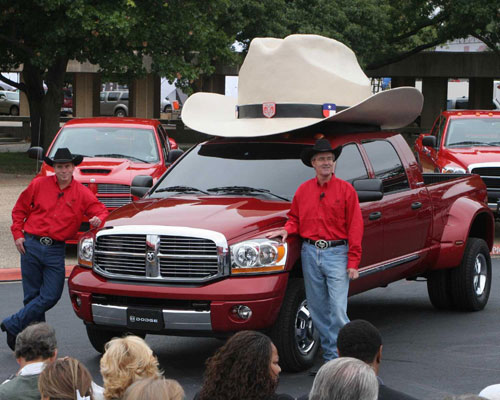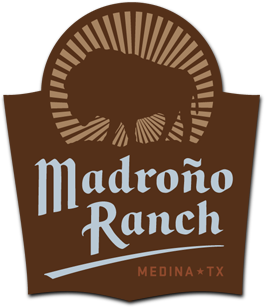
In reflecting on some of the issues Heather raised in her recent post on billboards and property rights, I’ve found myself forced to the conclusion that the American West doesn’t really exist, and never did.
Oh, I don’t deny the existence of all that land between the Pacific and the Mississippi—there’s a reason St. Paul and Memphis aren’t oceanfront cities, right?—but I’m talking about the popular conception, the mental image, that most of us (especially us Texans) carry of what it means to be a westerner, to inhabit those arid lands between roughly the 100th and 120th meridians.
But the image we all hold of the rugged, independent loner is largely a myth. It’s an important myth, no question, and one that has exerted a powerful pull on the American imagination for well over a century; cultural icons such as Bill Cody, Teddy Roosevelt, Owen Wister, Frederick Jackson Turner, Frederick Remington, Charlie Russell, Zane Grey, Tom Mix, John Ford, John Wayne, Gene Autry, Louis L’Amour, Roy Rogers, Clint Eastwood, Larry McMurtry, Robert Duvall, Cormac McCarthy, and Jeff Bridges have all contributed to or partaken of it (or both). Many of us, especially in Texas, like to imagine ourselves as squint-eyed, leathery cowboys (or, depending on your gender, cowgirls) living freely under the vast western skies, far from the corrupting influences of cities and corporations and government bureaucrats. That’s why so many of us still drive steroidal pickup trucks and wear cowboy hats and boots, even though we live in cities.
This myth has also, I believe, been a dangerous and tragically destructive one, because it has allowed us to confuse selfishness with self-reliance, and place individual liberties and property rights above collective obligations.
The result has been a century and a half of ecological exploitation and devastation: overgrazing, strip mining, erosion, aquifer depletion, clear-cutting, fracking, and so on. “Ruin is the destination toward which all men rush, each pursuing his own best interest in a society that believes in the freedom of the commons,” wrote Garrett Hardin (a native Texan!) in his famous essay “The Tragedy of the Commons.” “Freedom in a commons brings ruin to all.” According to Hardin, multiple individuals, each acting independently and rationally, will inevitably destroy a shared resource—which, in a nutshell, is pretty much the story of the settlement and development of the American West. As historian H. W. Brands points out in his American Colossus: The Triumph of Capitalism, 1865–1900: “Individualism had sufficed to develop the East, but individualism would fail in the West.”
One of the first to see this truth about the West was the one-armed Civil War hero John Wesley Powell, who in 1869 led the first expedition to float the Colorado River (the other Colorado River, as far as Texans are concerned) through the Grand Canyon.
Powell’s exploits are among the most spectacular, and quintessentially western, in American history. And yet the man himself saw clearly—more clearly than many who have come after him—that the ecological realities of the region meant that the type of individualistic culture that prevailed in the well-watered East would be a catastrophe in the West.
In his 1876 Report on the Lands of the Arid Region of the United States, Powell argued that settlement of the American West required a sort of enlightened communalism in apportioning the land and water; specifically, “the residents should have the right to make their own regulations for the division of the lands, the use of the water for irrigation and for watering the stock, and for the pasturage of the lands in common or in severalty.” Individualism (as manifested in dammed streams and fenced rangeland) would lead irrevocably to disaster. Mark Reisner summarized Powell’s views in Cadillac Desert: The American West and Its Disappearing Water: “Powell was advocating cooperation, reason, science, an equitable sharing of the natural wealth, and—implicitly if not explicitly—a return to the Jeffersonian ideal.”
But the government ignored Powell’s pleas for new policies adapted to the peculiar conditions of the West in favor of Business As Usual, and the Jeffersonian ideal—a republic of smallholders, the proverbial yeoman farmers, free from the domination and corruption of big-city corporations—morphed into the grotesque belief that every individual has the right to exploit and devastate his or her own land regardless of the long-term effect on it, or on his or her neighbors, however defined.
The final irony of the myth of Western individualism is that many of the region’s defining characteristics—the long stretches of interstate highway, the massive hydroelectric dams, the vast national parklands—are in fact the product of collective action, as manifested in the kind of Big Government that cynical politicians like to condemn. The traditional western insistence on private property rights and individual liberties thus flies in the face of historical fact; is, perhaps, a reaction to it. Most of those cowboys whose rugged independence we so admire? Well, they were actually working for enormous corporations. Here’s Brands again:
To a far greater degree than in the East, settlement in the West reflected the influence of corporations and other institutions of capitalism…. Westerners were rugged individualists chiefly in their dreams (and the dreams of their Eastern and foreign admirers); in real life they were likely to draw paychecks for digging in corporate mines, plowing corporate fields, or chasing corporate cattle.
In his 1992 essay “Coming into the Watershed,” the Beat poet, Zen Buddhist, and environmental activist Gary Snyder makes the same point:
Many a would-be westerner is a rugged individualist in rhetoric only, and will scream up a storm if taken too far from the government tit…. [M]uch of the agriculture and ranching of the West exists by virtue of a complicated and very expensive sort of government welfare: big dams and water plans.
Well, yippee ki-yay. If the myth of the old West is useless, not to say downright pernicious, then we need to envision a new West: a West where courage and determination manifest themselves in generosity, innovation, stewardship, and the acknowledgment of limits both personal and ecological—a West, in other words, like the one envisioned by John Wesley Powell, marked by “cooperation, reason, science, an equitable sharing of the natural wealth.”
What we’re reading
Heather: Phyllis Rose, Parallel Lives: Five Victorian Marriages
Martin: Lewis Hyde, The Gift: Creativity and the Artist in the Modern World (still)

Well put, Martin…
Another great source on John Wesley Powell (with special emphasis on his political battles involving water and western lands) is “Beyond the Hundreth Meridian” by Wallace Stegner.
Thanks, Chock. I love Beyond the Hundredth Meridian and, indeed, just about everything Stegner ever wrote; I still think Angle of Repose is the best novel ever written about the West.
I like it all except for the implicit notion that the West corrupted a pure Jeffersonian ideal. The contradictions of individualism, it seems to me, are all to be found in Jefferson, whose opposition to the centralized government that made possible the fantasy of a small-holding community (and the expropriation that lay behind it) fully anticipate the tendencies you decry so eloquently here.
Oh, I basically agree with you, or would if I were smart enough to understand you: the older I get, the less patience I have with Jefferson. I do think, though, that the essential contradictions of Jeffersonian democracy were perhaps more quickly revealed in the West, where the fragility and/or scarcity of resources meant that a little selfishness went a long, long way – farther and quicker than it would have in the East.
Great analysis!
It seems to me that the westward expansion initially was fueled by either a desire to flee some sort of punishment or to accumulate great wealth or power. After all , the eastern US was not exactly overcrowded. I think that those headed west were not satisfied with a communal, cooperative,or settled agrarian existence. And they didn’t mind, perhaps even craved, solitude. For many “settlers”, rugged individualism was actually a manifestation of their criminality, antisocial behavior, adventurism, or rapacious desire for wealth- which is why corporate interests ultimately fit in so well and were fast on their heels! Once boots were “on the ground” , mining companies, railroads, banking and cattle interests-all had their human infrastructure in place and were able to begin the corporate exploitation of the West. Later,despite now having corporate and government overlords , those rugged individuals continued to regard themselves as free and unfettered, hence perpetuating the Western myth our free market/property rights “exceptionalists” love to espouse today.
If you go west long enough you end up in the east.
And vice versa!